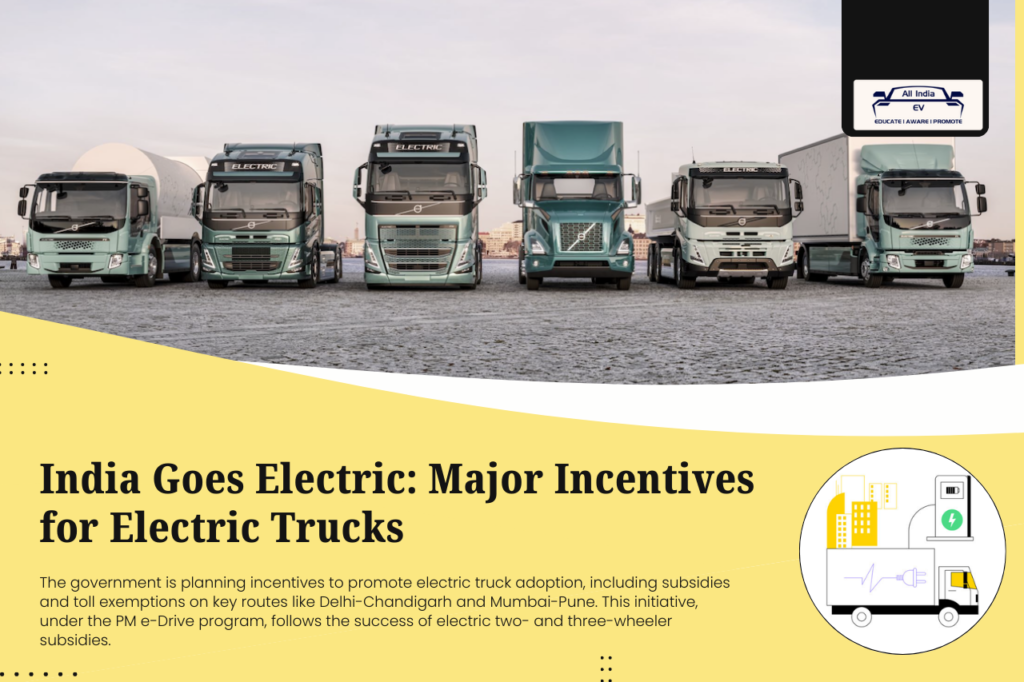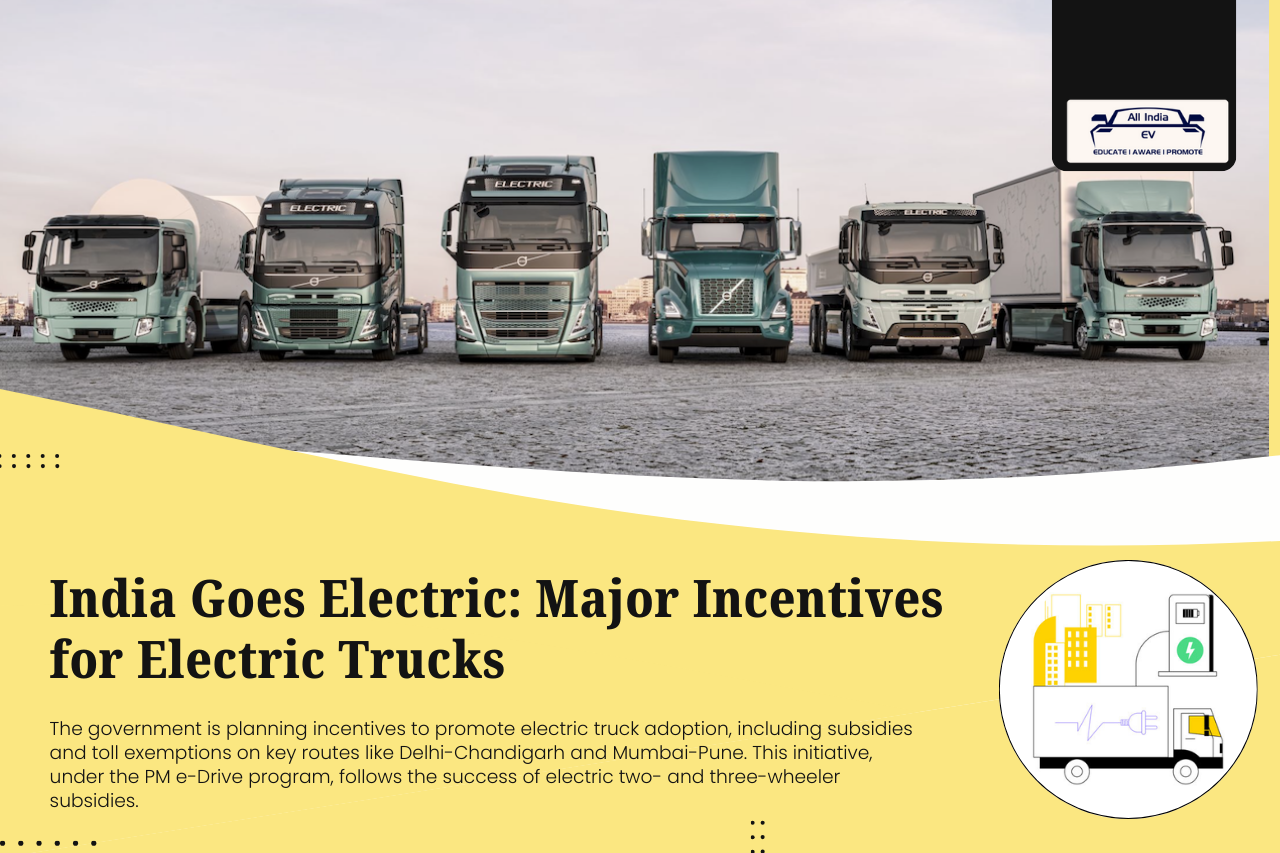
Government Set to Launch Subsidies and Benefits to Drive Electric Truck Adoption
- Key Highways to Benefit from Priority Routes
- Boosting the Electric Truck Ecosystem
- Incentives Tailored for Truck Size and Budget
- Collaboration and Insights from Global Leaders
- Grid Capacity and Charging Infrastructure
- Strong Interest in Electric Buses and Ambulances
- The Path Forward for Electric Trucks in India
In an effort to accelerate the adoption of electric trucks across the country, the central government is exploring a wide range of incentives, including subsidies, interest rate reductions, toll exemptions, and lower registration fees. These measures are aimed at facilitating the transition to electric trucking, which is seen as a key step in reducing carbon emissions from the logistics and transportation sectors.
Key Highways to Benefit from Priority Routes
As part of this initiative, the government has identified several critical highway corridors as “priority routes” for electric trucks. These routes include major highways such as Delhi-Chandigarh, Delhi-Jaipur, Mumbai-Nashik, Mumbai-Pune, and Agra-Lucknow.
These corridors, which typically require 5 to 6 hours for transit, will benefit from the government’s efforts to support the deployment of electric trucks, with special focus on the transportation of goods like cement and steel, which are vital to the economy.
Boosting the Electric Truck Ecosystem
This move is part of the PM e-Drive program, which has already seen success in the two-wheeler and three-wheeler segments. The government is now focusing on extending its efforts to larger vehicles, especially electric trucks. The Ministry of Heavy Industries has launched a Rs 500 crore scheme aimed specifically at electric trucks, which will also provide financial incentives for truck operators making the switch to electric.
Incentives Tailored for Truck Size and Budget
The government plans to offer subsidies for electric trucks based on the vehicle’s size, keeping within a set budget cap. This move is designed to encourage truck operators to make the switch to electric, replicating the success seen in the electric two-wheeler and passenger vehicle markets.
Collaboration and Insights from Global Leaders
In preparing the plan, the Ministry of Heavy Industries has consulted with multiple stakeholders from various sectors, including steel, cement, ports, and logistics. The ministry has also analyzed electric truck practices in countries like Europe and China, which are leading the charge in electric vehicle adoption, to ensure that India can effectively scale its electric truck market.
Grid Capacity and Charging Infrastructure
The government is also focusing on enhancing the power grid to accommodate the additional demand that electric trucks will bring. This is essential to ensure that the necessary charging infrastructure is available to support the growing number of electric vehicles.
Strong Interest in Electric Buses and Ambulances
Alongside electric trucks, there is also growing interest in electric buses. Cities such as Delhi, Bengaluru, Surat, Ahmedabad, and Hyderabad have already proposed plans for 15,400 electric buses, surpassing the funding available for the 14,000 buses initially planned. The electric bus program has seen strong uptake, and the government aims to release tenders for the procurement of 10,000 to 11,000 buses for the cities that have submitted proposals.
Additionally, companies like Tata Motors and Force Motors have shown interest in producing electric ambulances, further expanding the scope of the PM e-Drive initiative.
The Path Forward for Electric Trucks in India
The Ministry of Heavy Industries is actively working with various departments to establish the required charging infrastructure, addressing concerns raised by the industry regarding higher costs. This collaborative approach will play a pivotal role in ensuring that India can lead the way in the adoption of electric trucks, contributing to a cleaner and more sustainable transportation system.
With these efforts, India is taking significant steps toward a greener future for logistics and transportation, with the potential to dramatically reduce emissions and create a more sustainable economy.










